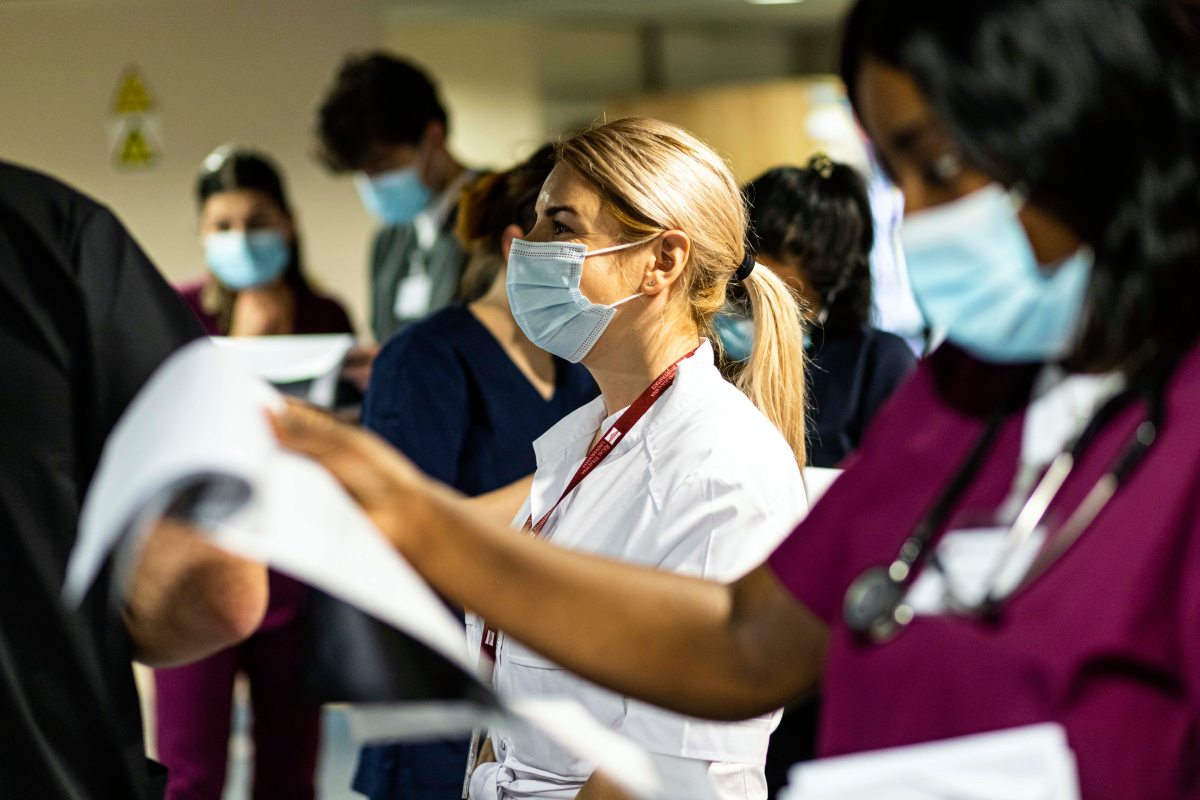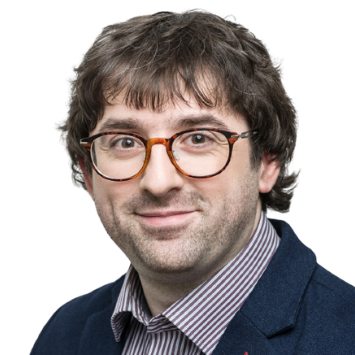Learning from mistakes – RSU Faculty of Medicine launches reporting system to improve patient safety in clinical placements
Patient safety is one of the cornerstones of quality healthcare, and its importance in the training of future doctors continues to grow.
New specialists must not only be able to diagnose and treat but also to recognise potential risks, learn from mistakes, and implement solutions that will improve the quality of healthcare in the long term.

The document “Sabiedrības veselības pamatnostādnes 2021.–2027. gadam" (Public Health Guidelines 2021–2027) acknowledges that the awareness of patient safety culture is insufficient in Latvia and that it needs to be improved by developing a non-judgemental patient safety incident reporting and learning system.
To promote awareness of safety culture among future professionals, starting from the 2025/2026 academic year, students in clinical placements at the Rīga Stradiņš University (RSU) Faculty of Medicine will be provided with the opportunity to learn and use a patient safety incident reporting and learning system. This approach will help future doctors not only learn from mistakes but also develop a professional and non-judgmental approach to the analysis of risk situations.
From simulation to clinical reality
An approach based on learning from patient safety incidents has already been introduced into the RSU study process. A pre-clinical placement is organised during the 3rd year of studies in the Medicine programme, which takes place in a simulated hospital environment at the RSU Medical Education Technology Centre (METC).
Within this pre-clinical placement, students have the opportunity to enhance their knowledge and skills in patient care in a safe learning environment, strengthen care-related action algorithms. They also learn how to use the patient safety incident reporting and learning system HaiPro, which has been adapted to the needs of RSU.
The adaptation of the Finnish-developed HaiPro system for RSU’s educational needs and clinical placement environment was done by Reinis Upenieks, Head of Emergency and First Aid Education Development and Expert in Patient Safety Issues at the RSU METC.
HaiPro is a safe, anonymous, and structured platform where it is possible to describe an incident, its consequences, contributing factors, and suggest preventive measures. HaiPro also provides a convenient way to conduct in-depth case analysis, using internationally recognised risk management approaches, such as Ishikawa diagrams and others. The integration of such a system is a crucial element of safety culture, as it allows meaningful analysis of events related to patient safety – both past and future – focusing on safety improvements in healthcare and ensuring the safety of both patients and staff.
Reinis Upenieks
The positive experience gained during the pre-clinical practice in the simulated hospital environment at RSU METC demonstrated that the patient safety incident reporting and learning system operates effectively. At the same time, the conclusions drawn formed the basis for the decision to expand the use of the system in the study process and to initiate its integration within clinical placements in real healthcare settings. Supporting materials have also been developed to facilitate the gradual implementation of the system and prepare students for its use.
Towards safer, higher-quality healthcare in the future
The decision by the RSU Faculty of Medicine to introduce a patient safety incident reporting and learning system in students’ clinical placements is an important step towards an open culture in healthcare where learning from mistakes is the norm. This is not just a technical innovation, but also a shift in mindset – a transition from fear of making mistakes to a willingness to acknowledge and understand mistakes in order to prevent them in the future. At the same time, this approach will provide an opportunity to make targeted improvements to the Medicine study programme, ensuring that the curriculum is continuously adapted to real healthcare needs and challenges.
A doctor’s professionalism goes beyond medical knowledge and clinical skills. It is also founded on responsibility – responsibility for safety and quality in healthcare. A professional doctor is prepared to discuss both actual adverse events and near misses in healthcare, including errors that may occur at both the individual and systemic level. It is important not only to identify such situations, but also to understand them and turn them into opportunities for improvement in order to shape healthcare in a way where the patient feels safe, the staff feels supported, and society is confident that the healthcare system can be trusted.
Prof. Jana Pavāre, Dean of the RSU Faculty of Medicine
The patient safety incident reporting and learning system will help prospective doctors acquire the skills to identify potential risks to patients in various clinical situations, perform structured risk assessments, develop cooperation among specialists, and gain the courage to talk about mistakes already during their studies. These aspects are a prerequisite for both safer patient care and a higher quality healthcare system as a whole.
The METC team is pleased with what has been achieved so far, highly appreciates RSU's contribution to strengthening the safety culture in medical education, and hopes that this approach will become a standard practice in other healthcare study programmes in the future.
Related news
 RSU supports military medical exercise KURLAND 25General, Aktualitātes, Sadarbības projekti
RSU supports military medical exercise KURLAND 25General, Aktualitātes, Sadarbības projekti


